Knowledge about the 1990s is a prerequisite for a more peaceful and just future, and a multiperspective approach to history is the foundation of critical thinking and understanding of that complex period, whose imprint we still carry today. Young people from the region are showing that there is a generation ready to take responsibility and change narratives. These were some of the key messages from the second regional school “The Nineties in Yugoslavia – New Sources and Methodologies”, held from 25 to 29 September 2025 in Budva, which gathered 25 young people from Serbia, Bosnia and Herzegovina, North Macedonia, Croatia and Montenegro.
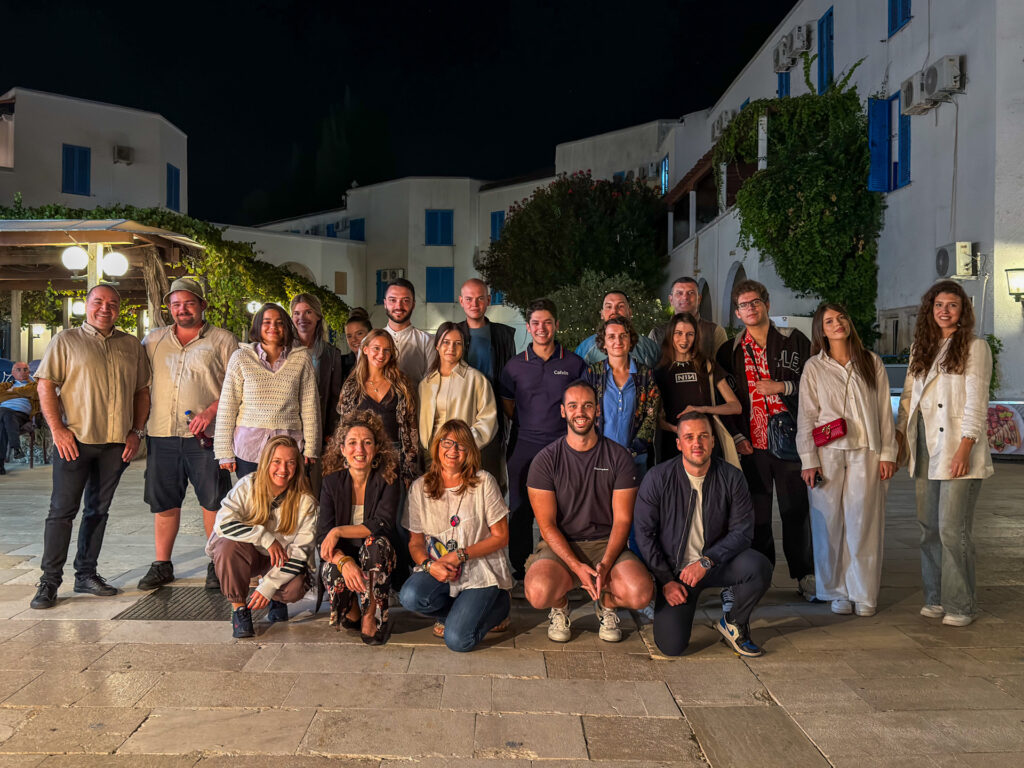
They had the opportunity to learn about different approaches to studying the 1990s and to apply contemporary methods for a better understanding of this period with Dubravka Stojanović, Professor at the Faculty of Philosophy, University of Belgrade, Adnan Prekić, Professor at the Faculty of Philosophy, University of Montenegro, Ana Radaković, researcher from the Museum of the 1990s, Miloš Vukanović, President of the Association of History Teachers HIPMONT, Vukan Ražnatović, Head of the King Nikola Museum in Cetinje, historian Sanja Radović, Olga Kavran, Director of the NGO IUSTICOM, Dragan Popović, historian and civic activist, film director Andro Martinović, and Maja Marinović, Program Associate at CCE.
The programme had an interdisciplinary approach, including lectures, discussions, work with archival sources, oral history analysis, a visit to the exhibition “The 1990s: From Dissent to Resistance” and an accompanying panel, a visit to the “Morinj” camp, film screenings, and educational-entertaining activities. All this contributed to expanding knowledge of the socio-political context of Yugoslavia’s breakup and scientifically established facts about conflicts and war crimes during the 1990s.
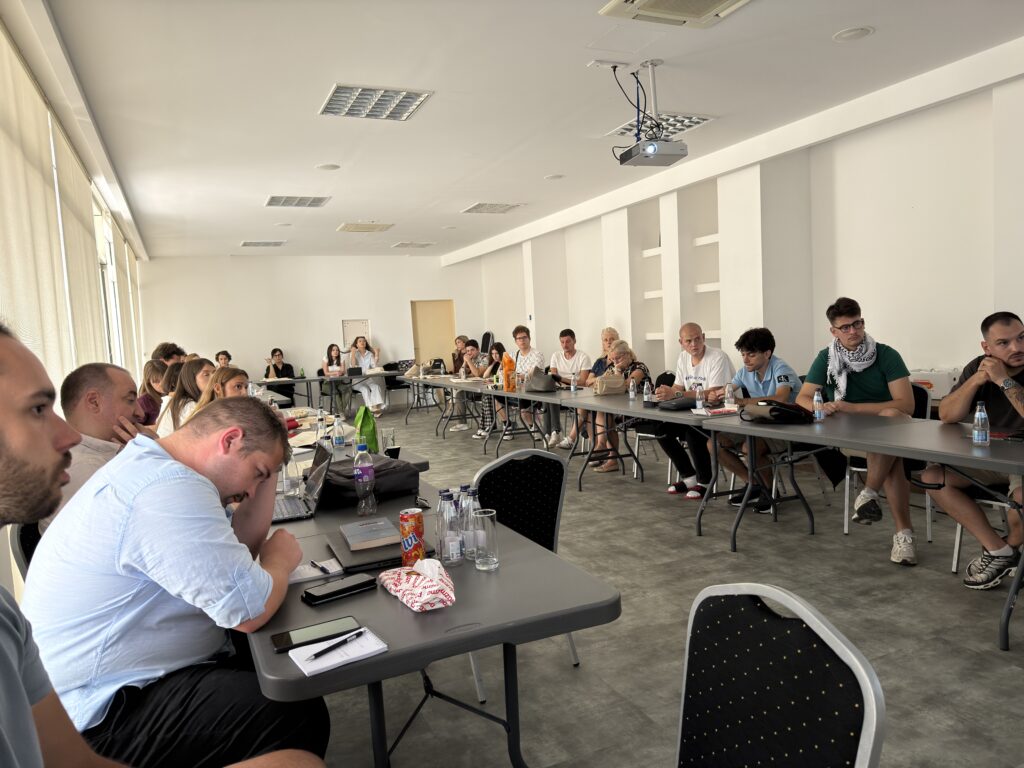
“It is important that young people in the region are well informed about the work of the Hague Tribunal for the Former Yugoslavia – from its establishment and functioning to the key facts it determined. It is especially important that they become familiar with its archives, which contain hundreds of thousands of documents and testimonies about our recent past. These archives are constantly subject to abuse and manipulation by politicians and other historical revisionists, which has a decisive impact on the everyday reality in which young people in the former Yugoslavia still live,” said lecturer Olga Kavran, who previously also served as spokesperson for the Hague Tribunal.
Dr. Dragan Popović emphasized that the regional school is one of the best programmes of its kind, highlighting its concept, topics, and exceptional participants. “This is a group of young people who, through their commitment and engagement, confirm that new generations have emerged from whom we can expect great things. This is a generation that is already showing its best side in Serbia today, but I believe such potential exists throughout the former Yugoslavia and that we will soon see it in action. It was an immense pleasure to contribute, even in a small way, to this process through the school,” said Popović.
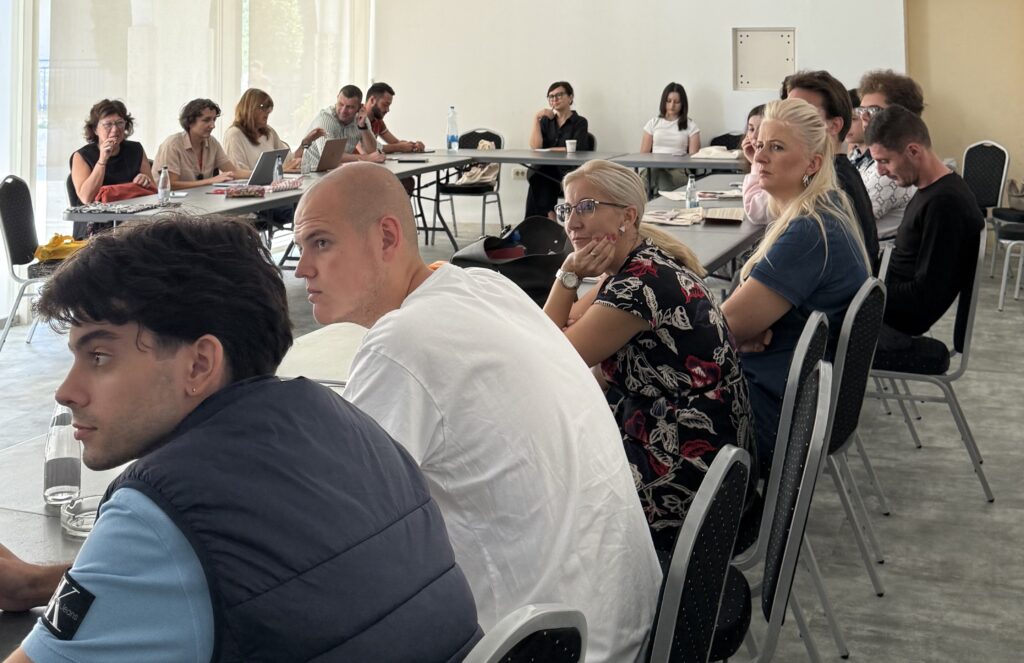
“In the challenging contemporary social context, burdened with ideologized perspectives, the importance of a critical approach to information and data we encounter is clear. A multiperspective approach to studying history is the basis of critical reflection that not only respects different views but also opens space for dialogue and understanding, something our societies chronically lack,” said lecturer Sanja Radović. She also emphasized that this innovative and much-needed approach is cultivated through the joint history textbook project, which for the first time gives teachers and students an opportunity to learn about the history of their regional neighbours.
“Young people still know little about these topics, because in almost all former Yugoslav states, formal education hardly addresses this period of our national and shared history. And if they do have some knowledge, it mainly comes from non-institutional sources – families, society, the media, and so on,” said Miloš Vukanović, who led part of the sessions. He assessed as encouraging the growing number of young people showing interest in an expert approach to this sensitive subject and a deeper understanding the positioning of this complex issue.
“The oral history workshop at the Regional School on the 1990s offered insight into the archive of the Museum of the 1990s and interviews with participants in anti-war initiatives in Serbia and Bosnia and Herzegovina.Working with authentic testimonies was especially valuable, as it enabled participants to understand personal perspectives and the social context of resistance to war, while also practicing how to analyze interviews,” explained lecturer Ana Radaković, adding that this connects research skills with critical reflection on the legacy of the 1990s and the preservation of memory.
“I went to America during the 1990s, and that experience shaped me as a person, an activist, a researcher, and a professor. My work is dedicated to the social and political determinants of health and to social justice, with the conviction that a healthy society produces healthy individuals. Truth, accountability, reparations, and solidarity are the key elements of a healthy society and its transformation after interpersonal and structural violence. Multiperspective history is the foundation of these processes. This school gave me a valuable opportunity to learn from activists, academics, students, and organizations from the region who have been deeply reflecting on these complex issues for years. I hope this is just the beginning of future cooperation,” said Jelena Todić, Professor of Social Work at the University of Texas at San Antonio and one of the programme’s participants.
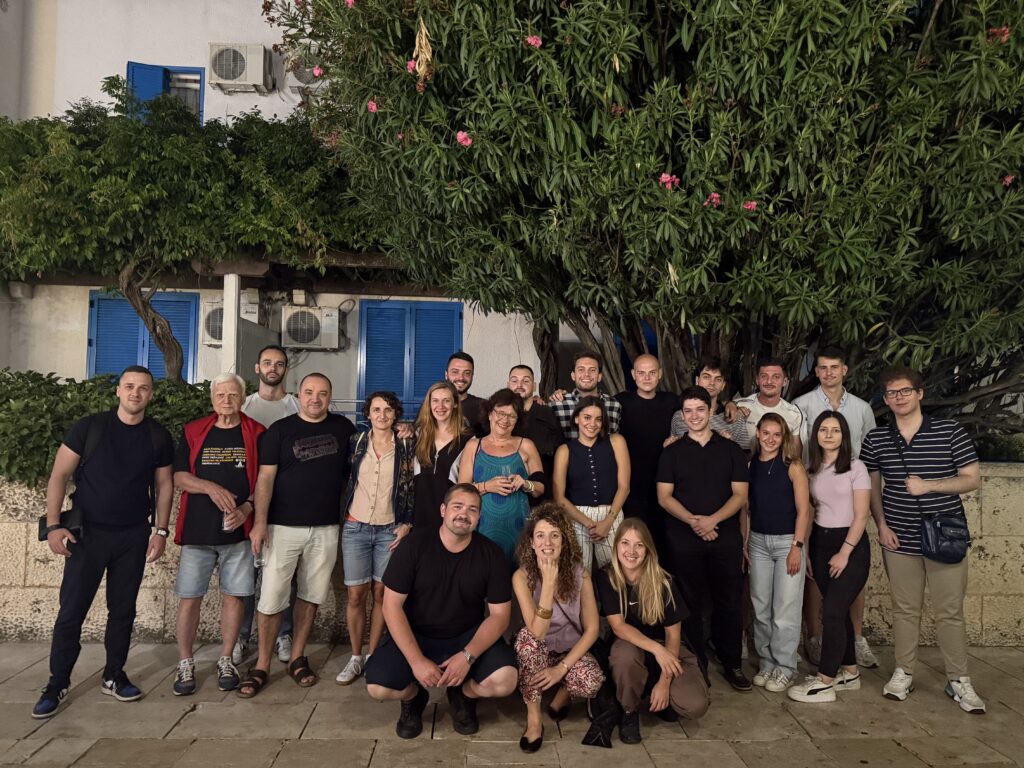
“At the school, I had the opportunity to broaden my knowledge in a multidisciplinary way, particularly regarding internal processes and dynamics in Montenegro from the 1980s to today, which was very interesting for me as someone coming from Croatia. Through the mosaic of lectures and sessions, I gained insight into how localized processes shaped reality across the region,” said participant Filip Marko Srdić, student at the Faculty of Philosophy, University of Zagreb.
“This school offered a unique way of learning about the 1990s and the complex events of that period. The lectures were extremely useful, substantive, and inspiring, particularly those about the breakup of Yugoslavia, the rise of nationalism, and the consequences of war – from economic crises to post-war trauma and genocide. The lecturers demonstrated great knowledge and readiness to answer every question. The organization was at a high level, which allowed full focus on learning,” said participant Edin Ramčilović, student at the Faculty of Philosophy in Skopje. He emphasized that participating in the programme will help in his future education and work. “For me, this was a valuable experience, and I would gladly continue cooperating with CCE and participate in future programs they organize,” Ramčilović concluded.
“The regional school on the 1990s showed me how important it is to learn about this period in an interactive and open way. Such programmes also provide an exchange of experiences and perspectives with people from different backgrounds, which is invaluable for understanding our shared past,” said participant Nadira Bajraktarević, student at the Faculty of Political Science, University of Sarajevo. She highlighted that young people need more knowledge about the 1990s because the consequences of that period are still felt in society, and she was particularly interested in the sessions on the Hague Tribunal, which demonstrate how essential confronting the past is for building a future based on justice and trust.
“I am glad I had the opportunity to be part of this school, because I do not have the chance to learn about these topics at such a quality institutional level. The school covered many subjects, but what was especially important to me was that we also addressed teaching methodology and how to talk about the 1990s, since this interests me the most as I would like to work in education,” said participant Marko Vajić, student at the Faculty of Philosophy, University of Belgrade. He emphasized the importance of such programmes for fostering a healthy culture of remembrance and promoting reconciliation in the region.
“Participating in this school gave me the opportunity to advance my knowledge and approaches to working with sensitive topics from the 1990s. It was especially important that we dealt with methods that encourage critical thinking, appreciation of different perspectives, and the development of student competencies,” said participant Violeta Stojkanović, history teacher at the “Ristan Pavlović” Elementary School in Pljevlja. She added that such programmes support teaching staff by contributing to more responsible and higher quality education and stressed that it would be useful for teachers to take part in such initiatives more frequently.
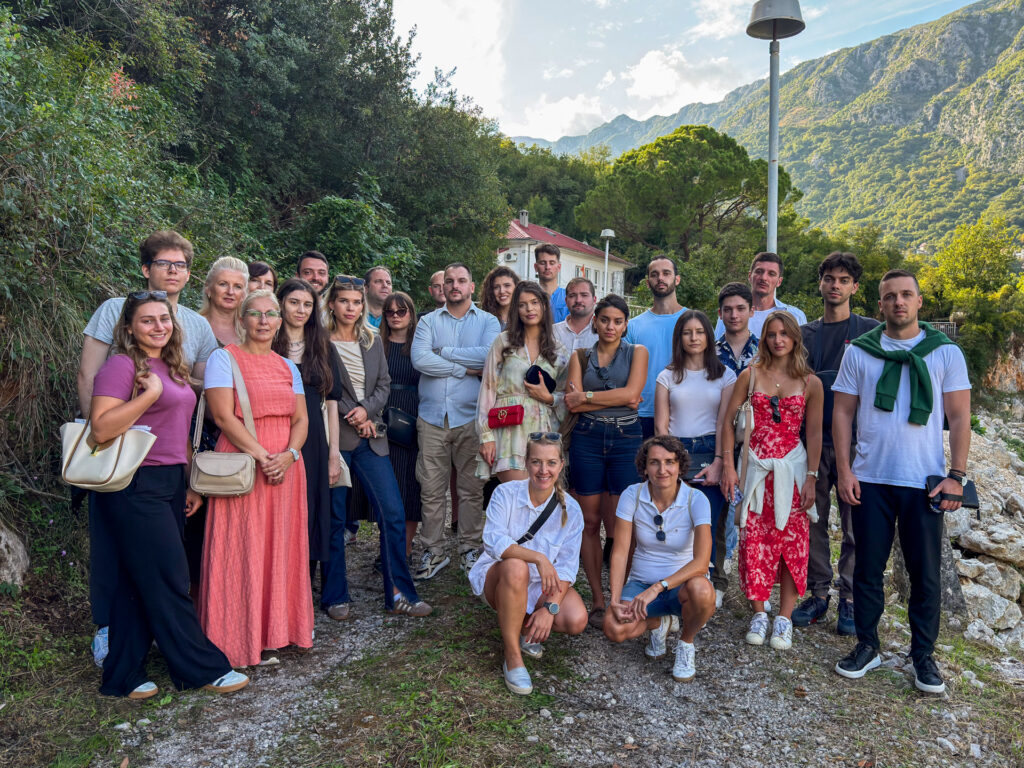
The Regional School “The 1990s in Yugoslavia – New Sources and Methodologies” is organized within the project “Museum of the 1990s – A Regional Center for Reconciliation, Education, and Future Cooperation,” implemented by the Centre for Civic Education (CCE) from Montenegro, Cultural Front and Foundation M90 from Serbia, with the support of the Ministry of Foreign Affairs of the Netherlands.
Enes Pućurica, Programme Associate
